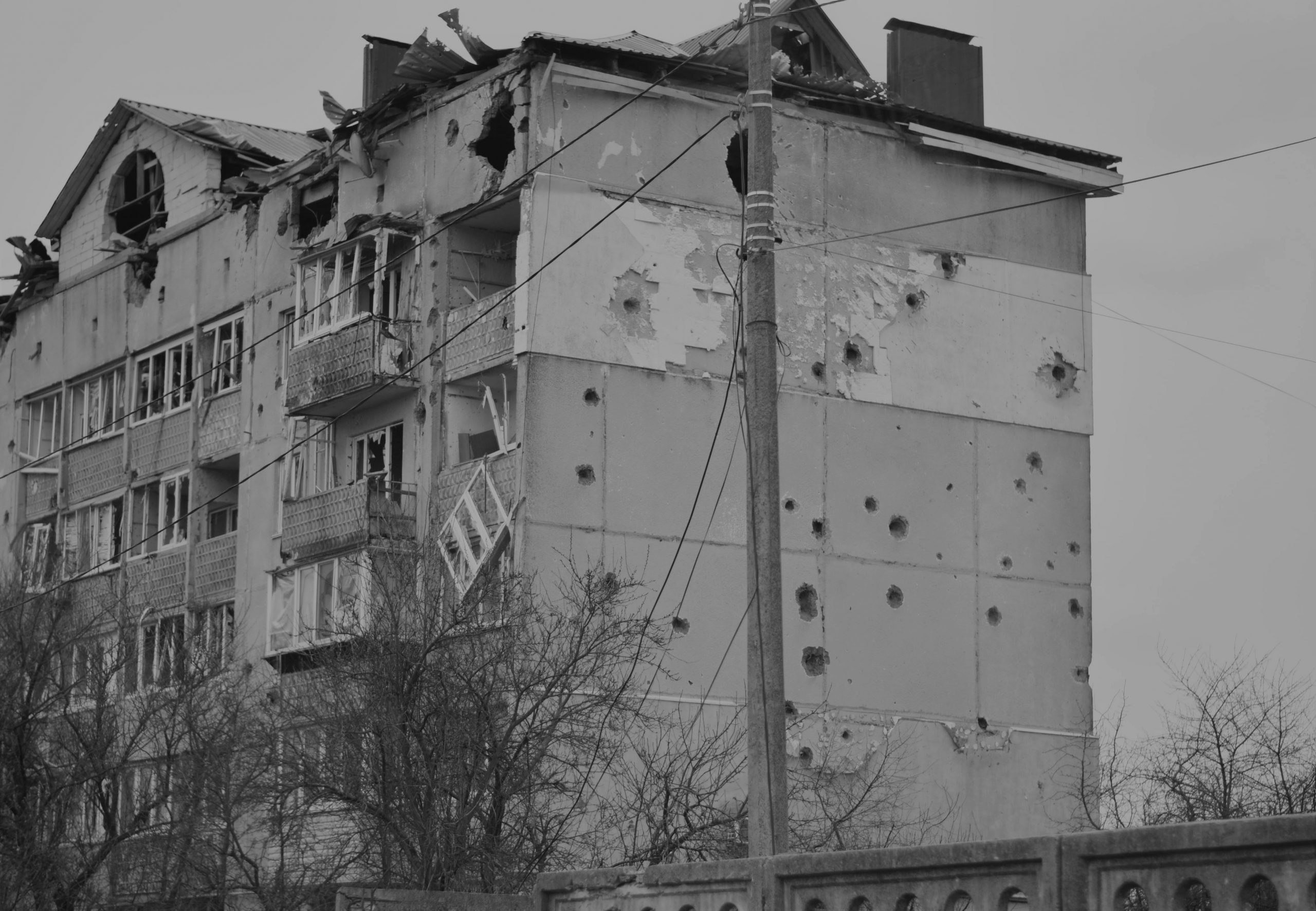During the course of wars, the infrastructure of cities faces destruction. Fighting, regardless of its intentions, destroys roads, bridges, commercial and residential buildings, as well as the architecture they embody.
Throughout history and around the globe, calls to stop wars have focused on the value of people’s lives. In recent decades, there has been a lot of attention paid to protecting cultural heritage. However, there has been little consideration for the value of public places and people’s memories of these spaces.
Buildings – such as residential and commercial structures, schools and hospitals – are often destroyed in the chaos of conflict, leaving behind psychological trauma that can last for generations. In a recent paper, we set out why cities and their buildings need to be protected. This infrastructure, unique or not, represents people’s history, culture and social fabric.
In our paper, we coined the term “wartime urbanism” to describe what we believe needs to be done to preserve a city’s distinctive characteristics in times of conflict.
We propose three ways to do this: mapping a city’s real estate development and its relative urban value; enacting national and international laws that criminalise the destruction of physical assets; and raising public awareness about these laws and the importance of city assets.
During times of conflict, cultural heritage and city places can be protected under various laws. However, for these laws to be effective, governments must implement them during periods of peace.
We argue that politicians and urban practitioners should incorporate wartime urbanism into city planning and design. This would help protect buildings, infrastructure, services, facilities, and public and private places before, during and after wars. The less severe the material damage (in terms of human lives and physical structures) from conflict, the faster reconciliation can be.
Protection from destruction
Conflicts in different parts of the world have caused the displacement of millions of people, and the destruction of hundreds of thousands of buildings and critical infrastructure. When wars intensify, the protection of people is rightly prioritised. Protecting places, however, rarely finds mention.
Wars and the destruction they cause are considered crimes against humanity. Prosecution for such crimes is most often enforced by international courts, like The Hague’s International Criminal Court. However, several countries have listed crimes against humanity under their domestic laws.
But there is more that can be done. For instance, the 1945 United Nations Charter, which lists the actions the organisation can take on a variety of issues, doesn’t include the protection of human property.
The 1972 Convention on the Protection of Cultural and Natural Heritage provides guidelines on securing sites of significant global value. These sites are part of everyday human heritage, and destroying them during peacetime is a crime punishable by law.
However, during war, everything is exposed to extreme destruction. Aggressors often seek to cause irreversible damage to the history and civilisation of the country under attack. If not by genocide, then by destroying people’s homes, memorials and valuable architectural assets. This was seen in Ethiopia’s Tigray region during the 2020-2022 war.
Urban planners can play a role in guiding urban conservation and preservation of city places by creating detailed plans that identify the assets that need to be protected – and how they can be protected. They can also develop strategies that mitigate the damage of war by focusing on how to rebuild in the aftermath.
Three rules of wartime urbanism
Wartime urbanism emphasises the importance of protecting cities or public places, regardless of their structure. This approach means professionals in architecture, urban planners and urban designers should develop plans that address the possibility of regional, global and international-level conflicts.
To protect city places from the destruction of war – or to restore and rebuild them to normal after a conflict ends – we propose three rules.
1. Pre-documentary mapping
Specialists in architecture and urban planning prepare maps that detail the development of a city, town or urban space. These maps should be kept in safe places physically and virtually. Should a war break out, developers can use these maps to rebuild infrastructure and restore city functions destroyed by conflict. This would help ensure that a city goes back to what it was, which would help minimise people’s psychological trauma.
These maps also preserve invaluable information about a city’s history and culture that can be used to inform future development and restoration projects. Because such maps document city assets, they can be used by international protection agencies to better measure the scale of destruction caused by war. They can also help identify areas of potential conflict – or spaces at risk of being targeted. Maps can further be used to advocate the rights of local populations when rebuilding after war.
2. Criminalising destruction
The United Nations and Unesco should add an item to their charters that states that ordinary buildings within a city should not be targeted and destroyed. This would give such buildings the same degree of importance as architecture and cultural artefacts. It would help rally people around protecting ordinary structures, and help reduce the risk of displacement and displacement-related poverty.
3. Raising public awareness
Educational institutions and the media need to raise public awareness on the impacts of war. Conflict not only affects lives, but places too. Destroying people’s homes, for instance, exacerbates poverty and trauma.
Public awareness efforts should also highlight laws around crimes against humanity, and other international and local statutes that punish those who sabotage the structure of cities. This would help deter aggressors from attacking infrastructure, and give citizens a greater understanding of the importance of their physical spaces.
By following these three rules, politicians and citizens can work together to preserve their cities. This would help reduce the time and money spent on rebuilding what wars destroy.
Originally published by The Conversation and reprinted here with permission.








